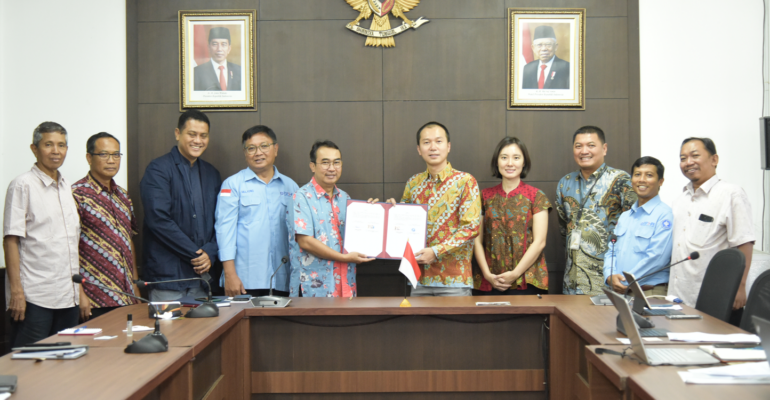Empowering Scavenger Communities, PSP3 IPB University, Asohi, and PMS Collaborate with Each Other

IPB University’s Center for Agricultural and Rural Development Studies (PSP3) together with the Indonesian Veterinary Medicine Association (Asohi) and PT Pelita Mekar Semesta (PMS) collaborate to empower the waste picker community.
Prof Muladno, Chief of PSP3 IPB University said that the collaboration between the three institutions was formed because they have the same goal: improving the lives of small communities. So far, he also has experience in empowering farming communities through the program he initiated, namely the School of People’s Animal Science (SPR).
On various occasions, Prof Muladno who is also the Supervisory Board of Asohi said that the purpose of SPR is to educate the farmers. Through SPR, IPB University is present to provide knowledge to the majority of people who can provide land, labor, food, most of whom are economically weak people.
“As many as 90 percent of local cattle owners are small people (weak economy). Check the owners of food, fisheries, agriculture, livestock in Indonesia are small people. On that basis, in 2013 IPB University wanted to educate them by initiating SPR,” he explained.
Through SPR, he continued, groups that have knowledge can contribute to the horizontal integration system of the nation’s food industry for all commodities. With the SPR program, both breeders, farmers and fishermen can be equalized.
Due to the success of the SPR, PT PMS, which is engaged in the waste recycling industry, wants to do the same for the scavenger community as the ecosystem of its industry. This was conveyed directly by Willyam Wiranda, CEO of PT PMS during the follow-up discussion of cooperation at IPB Dramaga Campus, (19/3).
“Scavengers are the lowest society, but the main foundation of the industry. They are also environmental heroes. We want to be able to contribute to waste pickers, improve their living standards, provide training, or SPR can become the School of People’s Waste Pickers. Thus, the government program in reducing waste can be achieved. We want to empower waste pickers,” he said.
Asohi Chairperson, Dr Irawati Fari expressed her appreciation for this collaboration. She welcomed the program to preserve the environment and improve the livestock industry in a sustainable manner. In addition, with IPB University, it wants to develop domestic animal products through various researches.
Prof Ernan Rustiadi, Vice Rector of IPB University for Research, Innovation and Agromaritime Development said that the SPR program initiated by Prof Muladno has been considered as one of the flagship programs of IPB University. This program has also received a lot of attention from various parties.
“SPR is a very different program because it is oriented towards strengthening farmers, strengthening the institutions of small-scale farmer groups. So not only do they get knowledge, but they also have a bargaining position. We see that the program is appreciated in various places in the country,” he said. (dh/Rz) (IAAS/NAU)



